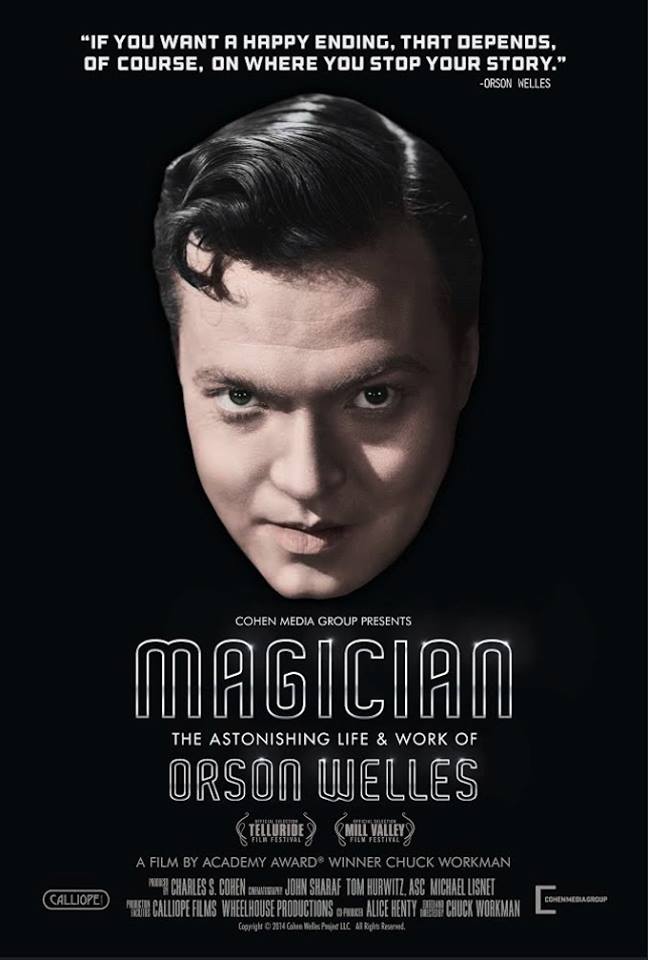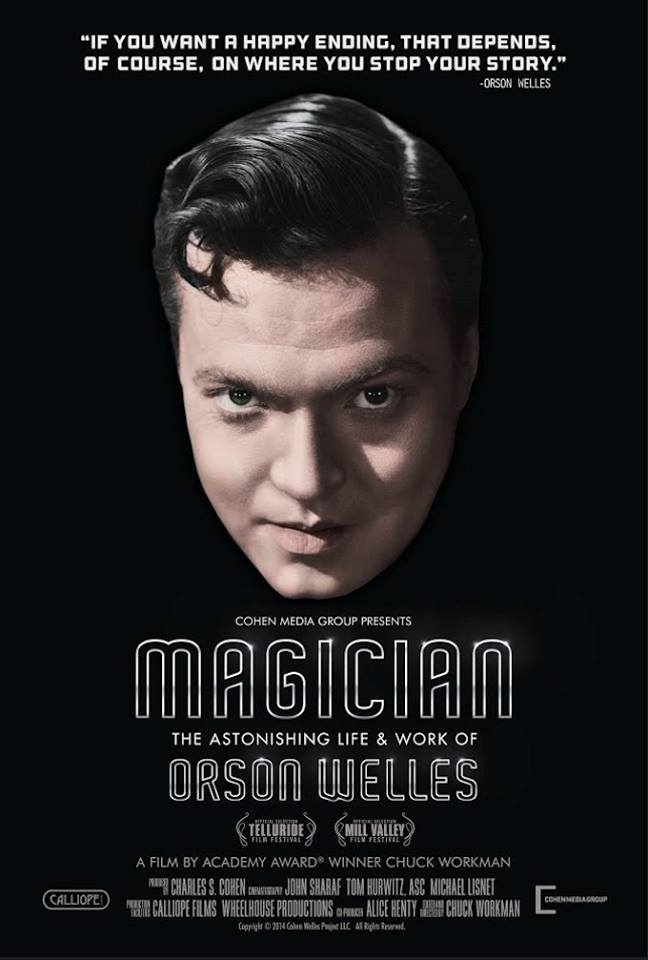“I didn’t go to jail,” said Welles, “I went to Hollywood.”
To an average college student, Orson Welles may ring a bell in reference to his infamous radio broadcast “War of the Worlds.” The episode of a radio drama series released as a Halloween special on the eve of Oct. 30, 1938.
The quote was in reference the repercussions of the night America panicked; the night in which Welles’ career would take a tremendous turn.
The Sonoma Film Institute presented an opportunity for students to learn more about the prestigious actor and filmmaker with the showing of “Magician: The Astonishing Life and Work of Orson Welles.”
The documentary film, directed by Chuck Workman, examined the remarkable genius of Welles in his career as a Hollywood star, director and independent filmmaker. Workman was able to efficiently cover the many milestones in Welles’ career.
The periods of his life and career that were explored in the documentary ranged from his boyhood in Woodstock, Illinois to his time where he innovated three major forms of media: theatre, radio and film.
Workman is most notable for his theatrical short, “Precious Images,” which released in 1986 and won an Academy Award for Best Live Action Short.
The eight-minute short film features 470 scenes from the most prominent movies through the history of American film.
Each of these scenes is only shown for a half of a second. His other work includes many documentaries presented in various film festivals such as the London Film Festival, Berlin Festival, Tribeca Festival and Sundance Festival. He also is a leading maker of movie trailers such as “Star Wars” and other major films.
Through his notorious talent with the creation of documentaries, Workman crafted the brilliantly filmed documentation of Welles from his childhood to all of the highlights of his career through his directing, acting, and producing experience.
His passion for the film industry began with his involvement in theatre. Shakespeare was among his greatest interests, for Welles directed many such as “Macbeth” beginning at the early age of 16, although at the time he claimed himself to be 19. The “Orson Welles Stage” in the Woodstock Opera House was dedicated to him on Feb. 10, 2013.
For the duration of the film, rare footage of Welles himself was distributed throughout. Workman excellently incorporated clips of television commercials, radio broadcasts and scenes from the many films he directed and acted in.
The film also featured interviews with renowned directors, producers and actors such as Steven Spielberg, Martin Scorsese, Peter Bogdanovich and Richard Linklater.
Workman was dynamically able to research and incorporate all collective history and information known and previously unknown to the general public regarding his struggle with funding and unfinished films such as his very first film project, “Heart of Darkness” (1940).
This unfinished production was before his greatest success, “Citizen Kane” (1941). There were other various films that were halted mid-production due to lack of funds – funds that Welles insisted on raising himself.
He was reliant on self-production, which resulted in the many unfinished projects that still remain unfinished today.
“Citizen Kane” is deemed one of the most renowned films in the industry. It was the first movie he directed as well as the first time he’d been on a movie set. He was only 25 years old.
However, countless films such as “Don Quixote” (1969) and “Moby Dick – Rehearsed” (1955) never made the final cut. During his time of struggle when searching for ways to fund the productions of his films, Welles went back into the acting business to raise money. However, he asked to be unaccredited because he wanted to be known as a director, not an actor.
He reportedly died at his desk, writing for a television show called “Magician.” The television special, filmed between 1976 and 1985 featuring Welles performing various magic tricks, was unfinished, not released until the year 2000.
Workman was able to piece together the many undiscovered aspects of Welles career through thorough research of his experience in the media industries.
He illustrated how Orson introduced many ground-breaking cinematography techniques in terms of style. His fame has not faltered in the current generation of filmmakers who still look to him as an inspiration for their work.





![[Both photos courtesy of sonoma.edu]
Ming-Ting Mike Lee stepped in as the new SSU president following Sakakis resignation in July 2022](https://sonomastatestar.com/wp-content/uploads/2024/04/CC4520AB-22A7-41B2-9F6F-2A2D5F76A28C-1200x1200.jpeg)



























